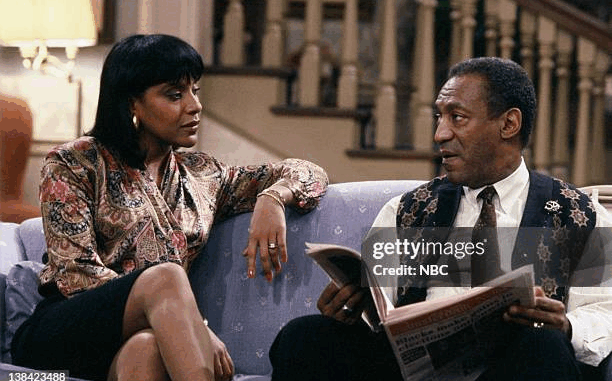
For millions of Americans, The Cosby Show wasn’t just television—it was a weekly ritual, a cultural touchstone, and a blueprint for family life. With its warm humor, unforgettable characters, and aspirational message, it raised a generation. But in the aftermath of Bill Cosby’s conviction and public disgrace, one haunting question remains: Can we still love the show that once meant everything?
More Than a Show—A Movement
Premiering in 1984, The Cosby Show redefined what was possible in American media. It gave us the Huxtables—an upper-middle-class Black family whose lives were filled with love, laughter, and lessons. It wasn’t just groundbreaking television; it was revolutionary.
The show shattered racial ceilings and provided representation that was intelligent, positive, and proud. For many Black viewers, it was the first time they saw themselves portrayed as doctors, lawyers, and high-achieving students on mainstream television. For white audiences, it challenged deeply embedded stereotypes and normalized diversity in a way no show had done before.
A Cultural Phenomenon
The Cosby Show wasn’t just popular—it was unstoppable. It dominated prime time for years, spawning spin-offs (A Different World), inspiring fashion trends (those sweaters!), and even increasing college enrollment rates among Black students, according to studies from the time.
The Huxtables were more than characters—they were ideals. Parents wanted to be like Cliff and Clair. Kids wanted to be Theo, Denise, Vanessa, or Rudy. The sitcom became a shared language in American households, regardless of background.
The Collapse of a Legend
Then came the fall.
When dozens of women came forward with accusations of sexual assault against Bill Cosby, everything changed. The man once celebrated as a comedic genius and moral voice was revealed to have lived a double life. In 2018, he became one of the first powerful figures in Hollywood to be convicted during the rise of the #MeToo movement.
The aftermath was swift and brutal: reruns were canceled, honors were revoked, and The Cosby Show became virtually unwatchable on major platforms.
The Art vs. The Artist Debate
Yet even amid the fallout, a painful question persists: Does the show still deserve our respect?
Many argue that the work of hundreds of actors, writers, directors, and crew members should not be erased because of the sins of one man. Phylicia Rashad, Malcolm-Jamal Warner, and others have voiced the difficulty of watching a beloved piece of art be tainted, especially when it changed lives for the better.
On the other hand, for survivors of Cosby’s actions—and for a society striving to uphold accountability—the show’s continued celebration can feel like complicity.
A Legacy in Limbo
Today, The Cosby Show exists in cultural limbo. It is a masterpiece built on the charm of a man now known as a predator. It is both uplifting and unsettling. It lives in our memories, in YouTube clips, in cultural references—but no longer in syndication.
Can we still love The Cosby Show? Perhaps the answer isn’t yes or no, but rather: we did love it—and we must now remember it with complexity.
Its brilliance is undeniable. So is the pain it carries.